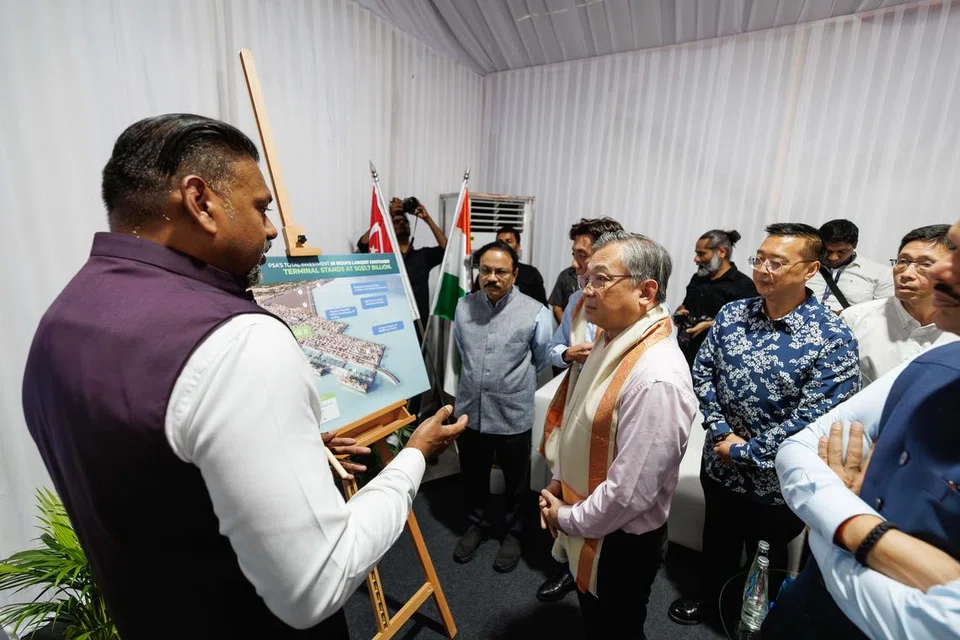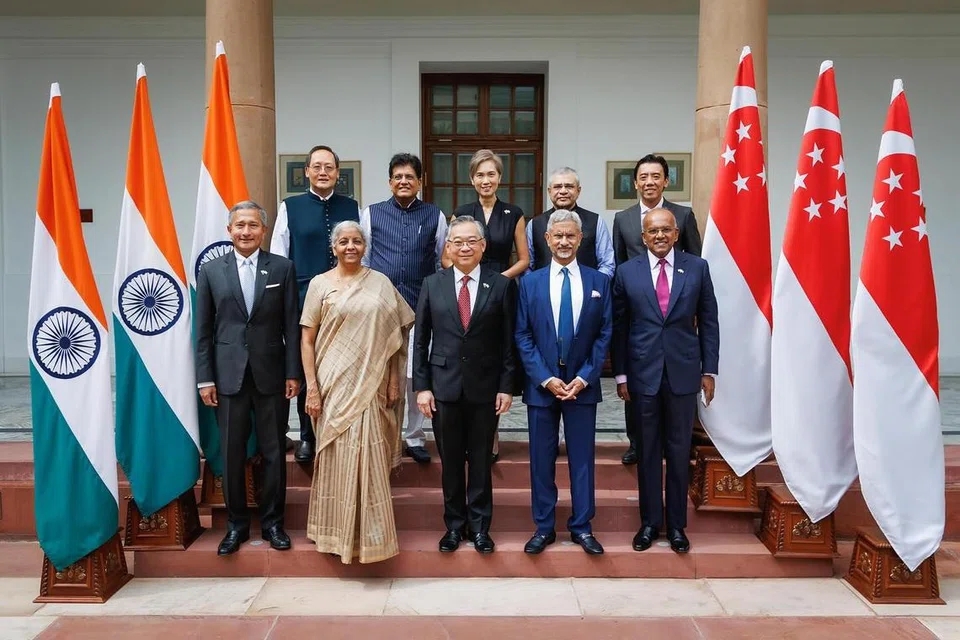Singapore faces a “more challenging, uncertain and volatile” global environment, making it vital to work with “likeminded” partners such as India to deepen cooperation, Deputy Prime Minister Gan Kim Yong said on Aug 13.
Speaking to reporters in New Delhi after the third India-Singapore Ministerial Roundtable (ISMR), Mr Gan outlined new and expanded tie-ups across sustainability, digitalisation, skills, healthcare, advanced manufacturing, and connectivity.
The ISMR brought together senior ministers from both nations, including Coordinating Minister for National Security K. Shanmugam, Foreign Minister Vivian Balakrishnan, Minister for Digital Development and Information Josephine Teo, Minister for Manpower Tan See Leng and Acting Transport Minister Jeffrey Siow, alongside India’s Ministers of Finance, External Affairs, Commerce and Electronics & IT.
The roundtable also marked the 60th anniversary of diplomatic ties between the two countries.
A key focus was collaboration in semiconductors. Mr Gan said discussions included establishing a semiconductor training centre and developing an ecosystem in India to support Singapore firms.
He noted that the semiconductor supply chain is very long and complex, often spanning a few countries.
“Therefore, it is important for us to continue to work with our partners regardless of the tariffs,” he said, referring to the US’ looming 100 per cent levy on semiconductors, which will not apply to companies that have made a commitment to manufacture in the US.
However, when asked if discussions with India had covered US tariffs on semiconductors and pharmaceuticals, Mr Gan said they had not.
“I think India is currently negotiating with the US, so we did not get into the details of a discussion on tariffs, specifically on pharmaceuticals,” he said.
Nonetheless, extending and expanding Singapore’s supply chain for semiconductors will make it more resilient, said Mr Gan.
“This will also give us more options and more alternatives in terms of where we source our components from and where we sell our products to. Both in terms of sourcing as well as market, we need to continue to expand and to diversify, and India is one area that is very interesting for many of our companies,” he said.
Several Singapore firms are eyeing India’s fast-growing chip industry, bolstered by six semiconductor plants under construction. A 2024 memorandum of understanding on semiconductors has already helped companies such as Cleantech Services expand into India.
Other proposed projects include a maintenance, repair and overhaul (MRO) training centre for aviation, collaboration on nurse training, a sustainability-focused industrial park – likely in Rajasthan – and knowledge exchange in nuclear energy.
The industrial park would emphasise sustainable waste treatment and cleaner energy sources.
On nurse training, Singapore is working with Indian institutes to align curricula so graduates can transition more smoothly into the Republic’s healthcare system.
Nuclear cooperation will see Singapore learning from India’s experience with small modular reactors as it studies future energy options.
Alongside the ministerial meeting, business leaders from both countries met at the India–Singapore Business Roundtable to explore partnerships in digitalisation, industrial parks, skilling, and infrastructure financing.
Earlier, in Mumbai, DPM Gan witnessed the signing of more than Rs200 billion (S$2.93 billion) in investment agreements by Singapore companies, including CapitaLand’s data centres and Mapletree’s infrastructure projects.
CapitaLand will invest over Rs192 billion in Maharashtra in business parks, logistics, and industrial facilities, while Mapletree committed Rs30 billion to similar developments.
The ISMR reaffirmed strong economic and people-to-people ties, with both sides reviewing progress since the 2024 meeting in Singapore.
Discussions also covered cross-border data flows, capital market cooperation, and skills training via national centres of excellence in India.
India remains Singapore’s top foreign investment destination, accounting for about 24 per cent of FDI inflows since 2000, while Indian investments in Singapore totalled US$31.6 billion in 2023. Analysts say expanding collaboration is especially important as global trade faces disruption from shifting US policies.


